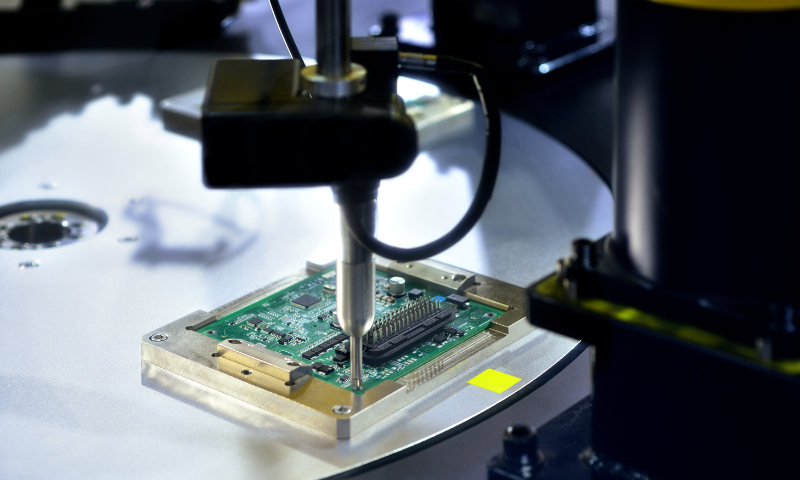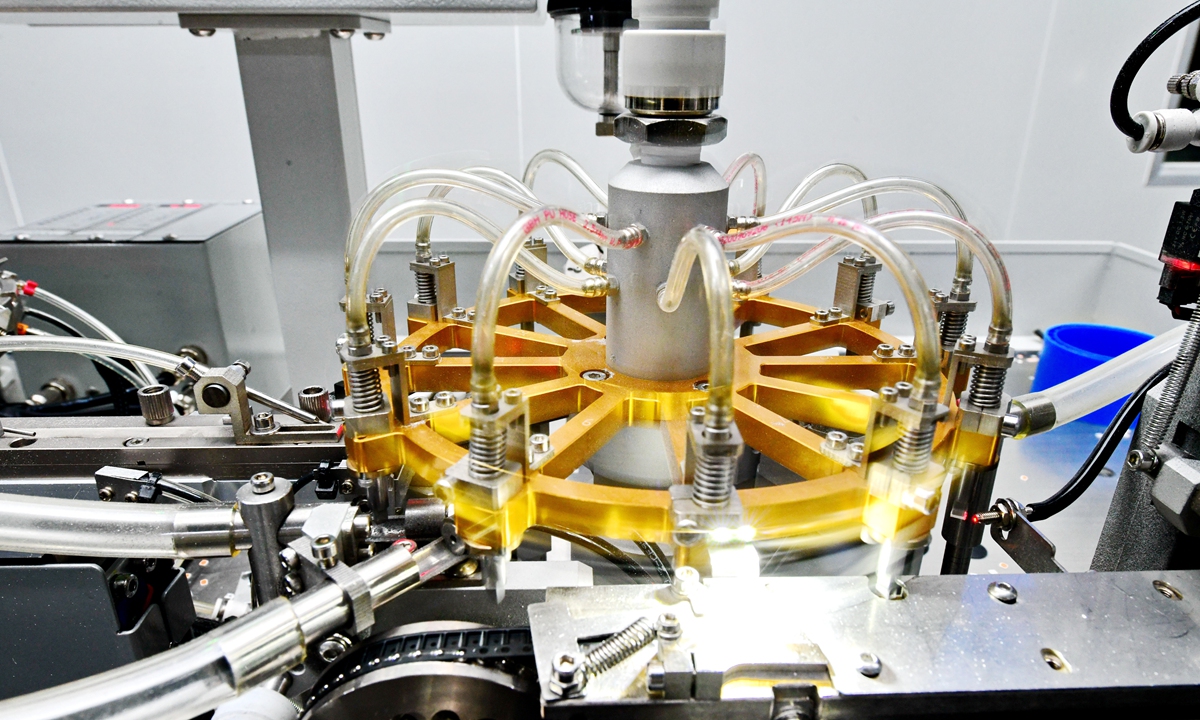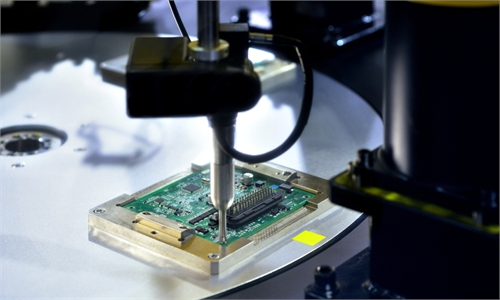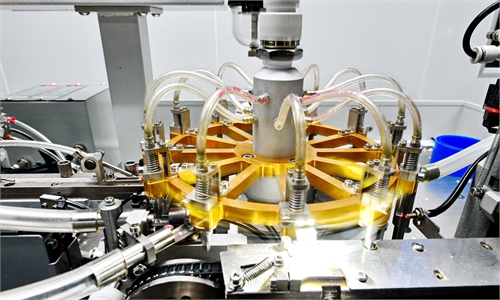US' chip decoupling call draws opposition from industry, won't disrupt pace of China's semiconductor rise, experts say

Production of semiconductor chip File photo: VCG
While the US government continues to push its crackdown measures on China's chip industry and offered "bait" to companies that are willing to estrange themselves from the mainland market, industry giants can't be persuaded to walk away from the world's second largest economy, as some industrial leaders expressed a wish to continue cooperating with China either by making public speeches or taking practical action.
Their choice is strong proof that China's supply chains and markets are of monumental importance to global chip giants, experts said, adding that China's chip industry has adapted to the tough external environment and managed to develop at a stable, orderly pace in recent years despite US obstruction.
Officials have sent a similar message, with Chinese Vice Premier Liu He saying that China has "formed strong capabilities in some fields of the integrated circuit industry" when he led an investigation of domestic integrated circuit companies on Thursday ahead of the opening of the two sessions.
According to a statement published by the Semiconductor Industry Association (SIA) on Thursday, the association will travel to the southern Chinese city of Xiamen for the 75th World Semiconductor Council Joint Steering Committee (JSTC) meetings, which will include industry counterparts from China, the EU and Japan.
The statement said while the US is focused on supply-chain resilience and rebuilding its industrial base with the passage and enactment of the CHIPS Act, the US can never be fully self-sufficient.
With global trade tensions on the rise, there is an urgent need for government policies that support open markets, innovation, and secure and resilient global supply chains, it said.
This viewpoint was echoed in the speeches of some industry veterans recently. According to Financial Times, Microsoft founder Bill Gates said on Thursday that the US won't be successful at preventing China from having great chips.
Gates did not see much sense in restricting chip sales to China, as China will be able to catch up with the US rather quickly, and expressed his desire for Washington and Beijing to cooperate more closely with each other, media reported.
Bain & Co partner Jue Wang also said at a recent event that instead of walking away from China, (US) companies are thinking about how they can "walk the tightrope" to hold on to the Chinese market for as long as they can, according to a report in the South China Morning Post.
The industry's concerns and expressions of resistance came as the US government continued to launch policies that seek to persuade or pressure companies to drift away from Chinese supply chains.
The US Commerce Department on Thursday imposed export restrictions on more than two dozen Chinese entities, including chip firm Loongson Technology.
Mao Ning, spokesperson of China's Foreign Ministry, said it was another example of the US making excuses to suppress Chinese enterprises by any means it can.
On Tuesday, the US Commerce Department also released its plans to begin accepting applications for a $39-billion manufacturing subsidy program. The prerequisite for companies receiving the money is that they enter into agreements restricting their ability to expand semiconductor manufacturing capacity in foreign countries of concern like China for 10 years.
Ma Jihua, founder of Beijing DARUI Management Consulting Co, said that the US government's attempt to "kidnap" companies through so-called national security is bringing a lot of harm to the industry, even with the compensation they are being offered.
"Many US tech giants are a beneficiary of globalization, and they well understand that technology itself won't bring about huge profits unless there are huge markets like China," Ma told the Global Times.
According to Ma, the negative effects of the US decoupling measures have already appeared, with many companies having to bear higher costs in business links ranging from labor and technology to investment, which in turn eat into their profits.
Fu Liang, an independent tech analyst, also told the Global Times on Friday that the US' idea of pulling plants from a country with relatively low labor costs to itself goes against economic rules, and therefore cannot win recognition among industrial players.
"The US move hurts the whole industry, and the harm is not restricted to China, or itself, but all countries," Fu said, adding that the US won't be able to fully stop Chinese companies from obtaining chips from overseas sellers, although they might succeed with certain firms.

Manufacturing equipment of semiconductor products Photo: VCG
China's efforts
In contrast, China's semiconductor industry has progressed steadily under policy support and industrial efforts, with experts saying that China has been able to achieve a relatively high level of localization.
Chinese Vice Premier Liu He conducted an investigation of integrated circuit (IC) companies and chaired a symposium with them on Thursday, emphasizing the importance of mobilizing nationwide resources in the industry's development, according to a report from the Xinhua News Agency on Thursday.
According to Liu, China has formed a relatively complete integrated circuit industry chain, and a number of outstanding enterprises and entrepreneurs have emerged and formed strong capabilities in some fields.
Ma said that China's chip industry has generally stabilized after experiencing some fluctuations as a result of US obstruction.
"The development of China's chip industry has not been disrupted by US interference. Instead, it is developing at its own pace and has made quite good achievements," he said, adding that China can basically achieve domestic substitution in 28-nanometer chips, and is also making some breakthroughs in 14-nanometer chips.
The Chinese mainland is still the largest single semiconductor market in the world, with total sales reaching $180.3 billion in 2022, according to the SIA.
Ma also noted that Liu's investigation sends a signal that the government has always supported the development of the semiconductor industry, and will continue to offer such support regardless of what problems may emerge.
China's top leader has repeatedly stressed the importance of technological self-reliance. He recently stressed that strengthening basic research is an imperative for higher-level self-reliance and greater strength in science and technology, and is the only path to building China into a world leader in science and technology, according to Xinhua.



